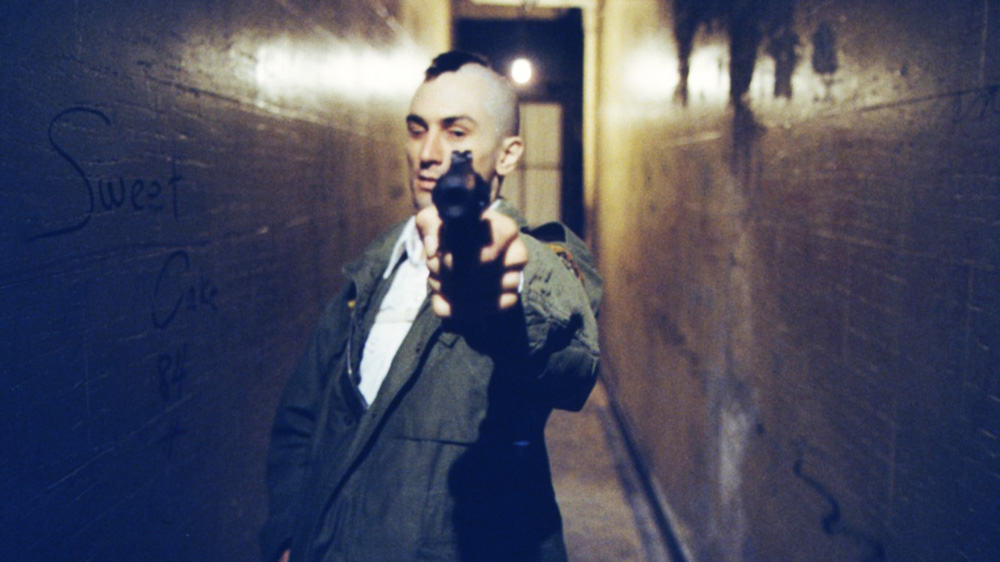Whenever Martin Scorsese and two-time Academy Award winning actor Robert De Niro link up, a masterpiece looms, and the 1976 Oscar-nominated film Taxi Driver is a fine example of that statement.
De Niro plays Travis Bickle, a sociopathic Vietnam War veteran who works as a taxi driver to fill a large hole in his life; loneliness. As the film progresses, De Niro’s Bickle becomes more and more disgusted with the ongoing decadence, violence and immorality that’s drenched the streets of New York City in 1970’s America.
Each frame in Taxi Driver is meticulously shot to perfection, allowing the character to blossom on-screen. Robert De Niro, who underwent measures to immerse himself into the role, hits this performance out of the park, portraying a quietly psychotic individual who slowly morphs into a mental train-wreck over the 113 minute film.
The supporting cast do a wonderful job, backing up the lead actor with Jodie Foster turning out an Oscar-nominated performance as a 13 year old institutionalised prostitute. Performing in her early teens, the role made her one of the youngest Oscar nominees in history, that was the catalyst behind a successful career to follow. Harvey Keitel, Albert Brooks, Leonardo Boyle and Cybil Shepard also co-star.
The milieu is authentic and raw; New York City’s grimy atmosphere is on dull display and Scorsese does a great job of setting the pessimistic tone throughout. Whether it’s enjoying an afternoon dessert at a local cafe or buying illegal firearms from an arms dealer, each scene is filled with despair and dehumanisation. Paul Schrader penned the script which is widely regarded as a gold standard in character study screenwriting.

Taxi Driver enjoys the luxury of shifting its pace sporadically, and it does so gracefully leading up to its stunning last portion. The film amplifies many issues crippling the country at that time, and after years away from home, Bickle finds it hard to ascertain the difference between the hell he just left and the hell he’s returned to. His military past is hardly tapped into, giving the cabbie a more ambiguous and third-dimensional structure.
The score is composed by Bernard Herrmann, who utilises a diverse range of sounds. Jazzy, ambient flutes permeate the screen, symbolic of The Big Apple — while a more chilling, bone-rattling sound is executed in times of peril.
Transcending basic story elements are the film’s talking points: PTSD-ridden veterans, dangerous crime rates and isolation; Scorsese masters this method of filmmaking in just about every movie he does, making a statement on broader issues pertaining to, and affecting his characters and Taxi Driver will always be a quintessential, influential and shining example on the theory.
Nominated for 4 Academy Awards, including Best Picture and Best Leading Actor, Taxi Driver is a rollercoaster journey into the mind of a depraved, disenfranchised veteran as he slowly loses his grip on society. Perhaps the ultimate ‘man on edge’ Scorsese flick, Taxi Driver cements its place in the pantheon of legendary cinema.
Fun Fact:
The scene where Travis Bickle is talking to himself in the mirror was completely ad-libbed by Robert De Niro. The screenplay details just said, “Travis looks in the mirror.” Martin Scorsese claims that he got the inspiration for the scene from Marlon Brando mouthing words in front of a mirror in Reflections in a Golden Eye (1967).




COMMENTS